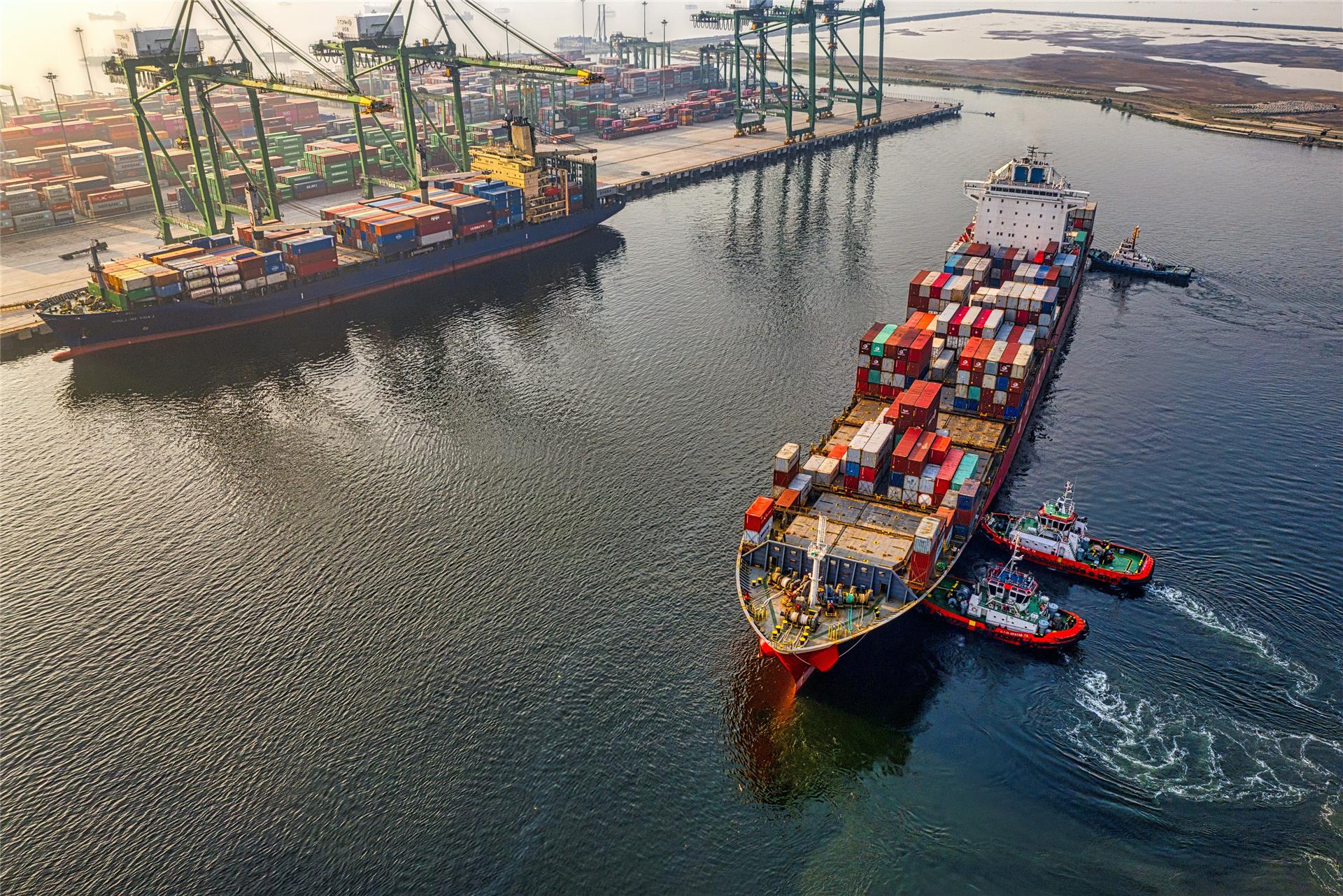
Introduction
Our Americas Members often deal with contracts of carriage subject to the US Carriage of Goods by Sea Act (“COGSA”) and the Harter Act (contractually or by force of law). Although these Acts have been in place for over a hundred years, the implication of each on an ocean carrier’s liabilities are still not always clear, especially if implied contractually.
We recently asked our correspondents, Freehill Hogan and Mahar LLP in New York, to provide updated insight on COGSA and the Harter Act in general, as well as within the scope of Club cover. Their comments follow.1 The Club is of course also available at all times to discuss any queries Members may have relating to US COGSA and the Harter Act.
FAQs on The Harter Act and COGSA:
When will the Harter Act or COGSA apply by force of law? When it applies by force of law, can it be excluded or modified, in whole or part, by clear contractual wording?
COGSA, as enacted in 1936, applies statutorily to all contracts of carriage of goods by sea to or from ports of the United States in foreign trade, during the period from the time when the goods are loaded on to the time when they are discharged from the ship. 46 U.S.C. § 30701 note, § 13 and § 1(e). This is commonly referred to as the “tackle-to-tackle” period of the voyage.
Additionally, COGSA only applies to contracts of carriage covered by a bill of lading or any similar document of title, and, by its terms, is not applicable to on deck or private carriage. Id. at § 1(b), (c).
Similarly, the Harter Act, enacted in 1893, applies to the carriage of goods to or from any port in the United States. 46 U.S.C. § 30702. However, COGSA supersedes the Harter Act with respect to the “tackle-to-tackle” period for international shipments. Although U.S. courts recognize that COGSA sharply curtailed the applicability of the Harter Act, the Harter Act may still govern during the period prior to loading and after discharge of cargo until proper delivery is made, unless COGSA is extended contractually.
In that regard, it is very common for ocean carriers to include clauses in their bills of lading contractually extending COGSA coverage to periods before loading and after discharge.
As another distinguishing factor, the Harter Act is not compulsorily applicable to any inland portion of carriage pursuant to a through bill of lading, i.e. “proper delivery” under the Harter Act does not mean delivery to the ultimate consignee at the end of intermodal transportation. It means delivery to the inland carrier.
(By contrast, when COGSA has been extended under a through bill of lading to cover the period before loading and after discharge, delivery occurs when the goods are made available to the consignee at the designated inland delivery point.)
As to limitation of liability, while the Harter Act invalidates provisions in an ocean carrier’s bill of lading absolving the carrier for its own negligence, the statute permits contractual provisions limiting a carrier’s liability.
Thus, for example, contractual per package limitations of liability for periods before loading and after discharge from the vessel are permissible under the Harter Act as long as they provide for some liability and do not exculpate the carrier. Moreover, the shoreside contractual extension of COGSA in bills of lading will permit the carrier to rely upon COGSA’s $500 per package limitation (or other limitation contractually provided).
To the extent the Harter Act or COGSA apply as a matter of law, neither statute can be excluded and thus set the floor as to required terms. However, carriers are certainly able to provide more favorable contractual terms to cargo interests than afforded by the statutes insofar as, for example, stripping away defenses to the carrier, higher valuation for liability, increased package limitation (or no package limitation at all), etc.
Similarly, to the extent either statute applies contractually, then the parties are free to negotiate terms as mutually agreed.
Where a contractual law/jurisdiction clause elects US law, does the Harter Act or COGSA automatically apply?
From a U.S. law perspective, a U.S. law/jurisdiction clause (referencing COGSA for example) which is properly drafted and broad enough to cover, inter alia, any and all disputes arising under the bill of lading or other applicable agreement should suffice to trigger COGSA (or the Harter Act) and its defenses and limitations.
Conversely, a reference to US law alone may not be sufficient to incorporate COGSA (and/or the Harter Act) for periods that such laws do not otherwise apply statutorily. Certainly, however, there are many permutations resulting in possible differing results.
As noted, carriers are certainly able to provide more favorable contractual terms to cargo interests than afforded by the statutes insofar as, for example, stripping away defenses to the carrier, higher valuation for liability, increased package limitation (or no package limitation at all), etc. Similarly, to the extent either statute applies contractually, then the parties are free to negotiate terms as mutually agreed.
Are there obligations in the Harter Act or COGSA which are more onerous than in the Hague/Hague Visby Rules for the Carrier? If so, what aspects are more onerous?
Generally stated, COGSA serves as the U.S. enactment of the Hague/Hague Visby Rules and the defenses applicable are essentially the same. One exception, of course, is that COGSA’s $500 per package limitation is more favorable than the applicable limit under the Hague-Visby Rules, which is the higher of 667.67 SDR per package or other shipping unit or 2 SDR per kilogram of gross weight.
Liability under the Harter Act, to the extent applicable, is generally more onerous than under COGSA or the Hague/Hague Visby Rules in that the carrier is liable for its own negligence and, as indicated above, that statute does not expressly provide for a limitation per package or by weight.
Do the Harter Act and COGSA apply to all contracts of carriage, or only to bills of lading and other negotiable documents? What is meant by “common carriage” and “private carriage” in the Acts?
As indicated above, COGSA supplants the Harter Act during the period “tackle to tackle.” As drafted, the Harter Act “only applies to public carriers;” however, “parties to private contracts are free to [incorporate the Harter Act by] contract and [are] not prevented by statute from limiting liability.”
Similarly, COGSA by its terms: (i) only applies to bills of lading and similar documents of title, meaning that COGSA is not applicable, for example, to non-negotiable bills (i.e. straight bills) and seaway bills; (ii) does not apply to charter parties or other private contracts of carriage, i.e., service contracts; and (3) does not apply to cargo stowed on deck. See 46 U.S.C. § 30701 note, § 1(b), (c) and 5.
- Seaway bills and non-negotiable bills: Although COGSA does not apply statutorily to these types of bills because they are not documents of title, it is very common for the parties to incorporate COGSA contractually to both seaway bills and non-negotiable bills of lading.
- Charter Parties / Private Carriage: Common carriage is the transportation of cargo for the public under bills of lading. By contrast, private carriage is generally subject to a charter party, whether in part or for the full cargo carrying capacity of the vessel. In cases of private carriage, the parties may incorporate COGSA contractually through, for example, a US Clause Paramount. Likewise, while COGSA does not apply statutorily to service contracts, the parties are free to (and frequently do) incorporate COGSA contractually.
- On Deck Cargo: Cargo defines the term goods to include “goods, wares, merchandise…except live animals and cargo which by the contract of carriage is stated as being carried on deck and is so carried,” thereby excluding cargo carried on deck from its coverage. 46 U.S.C. § 30702, note, § 1(c). However, the parties to a bill of lading may contractually extend COGSA to cover cargo stowed on deck and such clauses are enforceable to the extent the stowage does not expose the cargo to greater risk and/or is the custom and practice in the trade (e.g. on container ships).
If both the Harter Act and COGSA apply by force of law, will one automatically take precedence over the other? Is the position the same if they are both incorporated by virtue of a choice of law clause?
COGSA supersedes the Harter Act with respect to the “tackle-to-tackle” period for international shipments, and thus the Harter Act applies by force of law only during the period prior to loading and after discharge of the cargo until proper delivery. As noted herein, COGSA can be contractually extended to the period before loading and after discharge and is generally enforceable on that basis.
However, there are some exceptions to this general statement in situations, for example, where COGSA would serve to exonerate the carrier from liability in a manner not permitted under the Harter Act.
If you should have questions regarding anything covered herein, please reach out to your Service Team for assistance.
-----------------------------------
1We would like to extend great thanks to Michael Fernandez, Will Yost and Cody King of FHM who performed all of the underlying research and drafting of this article (https://www.freehill.com/; https://www.freehill.com/attorney/michael-fernandez; https://www.freehill.com/attorney/william-h-yost/)
2Under the Club Rules, Members are not entitled to a recovery from the Association in respect of contractual liabilities which “would not have been incurred or sums which would not have been payable by the Owner if the cargo (including cargo on deck) had been carried under a contract incorporating terms no less favourable to the Owner than…the HVR…”. If COGSA and/or the Harter Act apply compulsorily by law, then associated liabilities would be covered.





